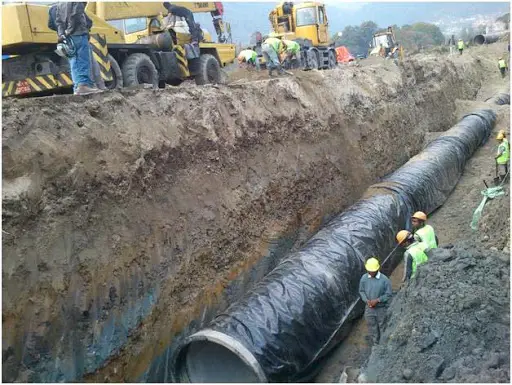The Mangwe piped water infrastructure, which is crucial to addressing the area’s recurring water shortages, is now 95% complete. Moment Malandu, a Matabeleland South District Development Fund (DDF) planning officer, confirmed the storey earlier this week.
According to Malandu, the new Mambale piped water initiative, which the Zimbabwean government entirely sponsors through the Social Welfare Department, is already in operation. The project extracts water via sand abstraction over a 14-kilometre area network.
Also Read: Zimbabwe bus terminals to undergo upgrade
Oxfam and the District Water and Sanitation Subcommittee (DWSSC) in Brunapeg have started community training on managing water points. According to Malandu, DWSSC will develop two piped water systems in schools in partnership with World Vision to benefit the community.
Another sponsor, he noted, has committed to contribute to the construction of three piped water systems in various sections of Mangwe. At the moment, Oxfam is attempting to build three large-scale piped water projects in the region. One covers the clinic, school, and community in Mayobodo; another covers the clinic, school, and business centre in Madabe; and a third covers the DDF base camp clinic and school in Empandeni.
He further added: “DWSSC and World Vision established two piped water schemes. One at Kwite, which covers the school, business centre and community, and one at Vaka School, this covers the school, community and business centre and community.”
This is a buzzing hub of activity on the border between Zimbabwe and Botswana. The DWSSC observed that the Vaka area suffers from a serious water shortage and that the water table makes digging more boreholes problematic. As a result, the solution was to construct a piped water system on top of an existing perennial water supply.
According to Malandu, the area, which is part of Region 5, was “extremely dry,” thus the intervention in the form of piped water projects was appreciated.
Toilets, a water tank, a submissive pump, and construction help were all erected at Marula Clinic.
Malandu also announced that Unicef, through the Red Cross, has offered substantial aid during this project.
